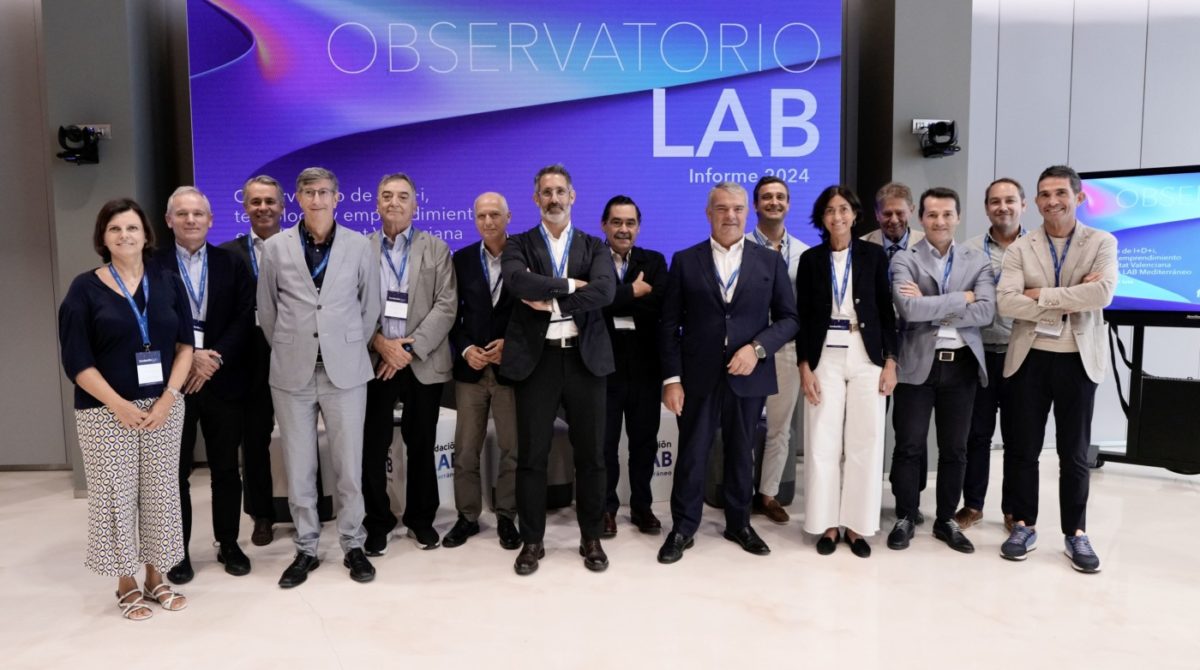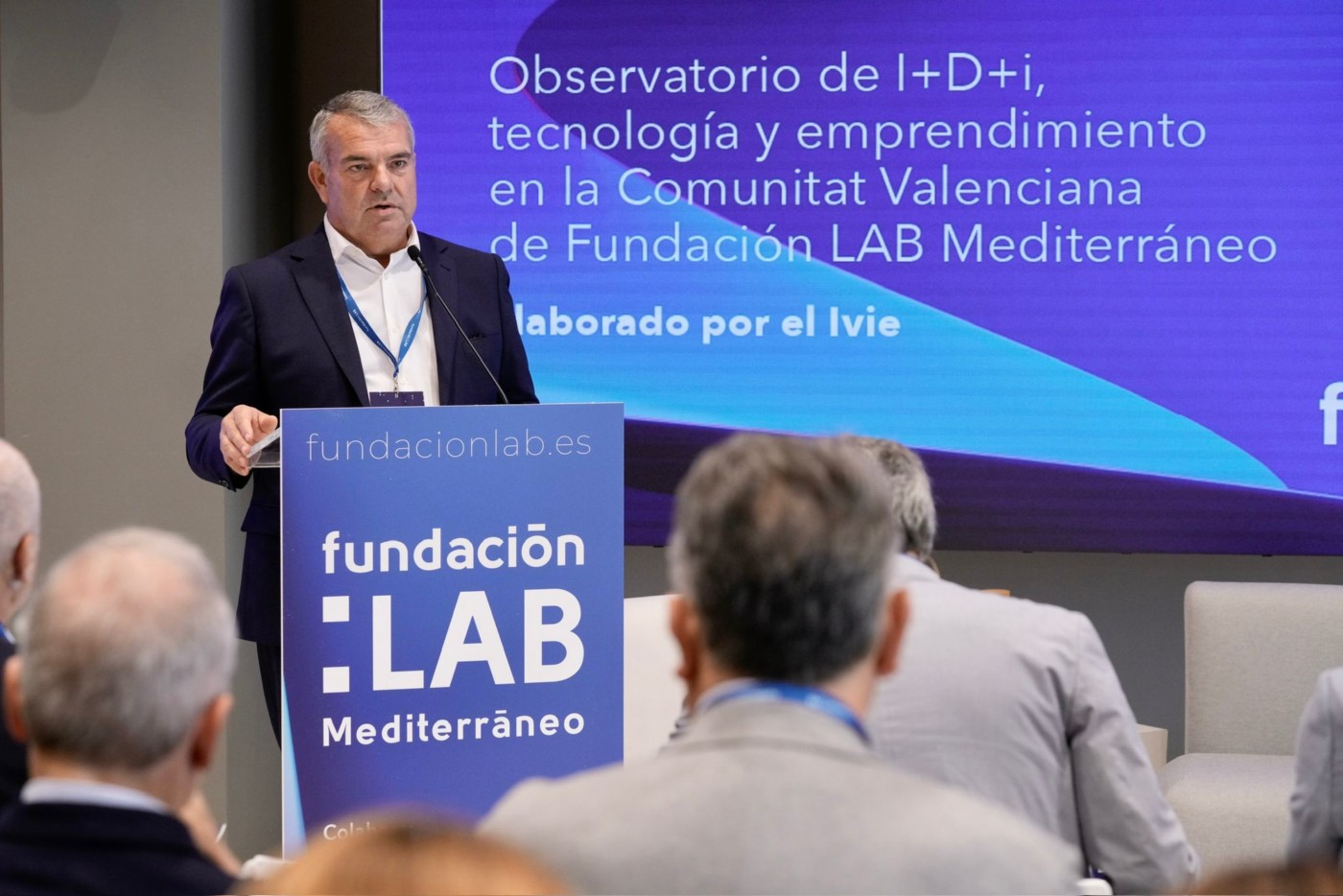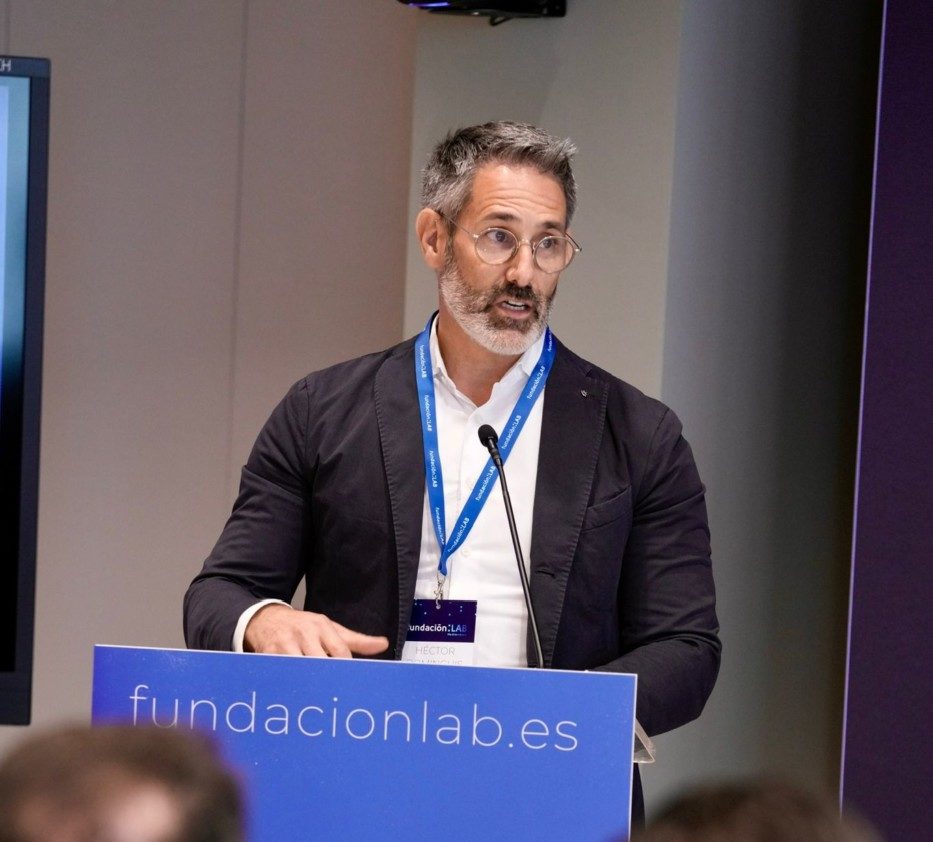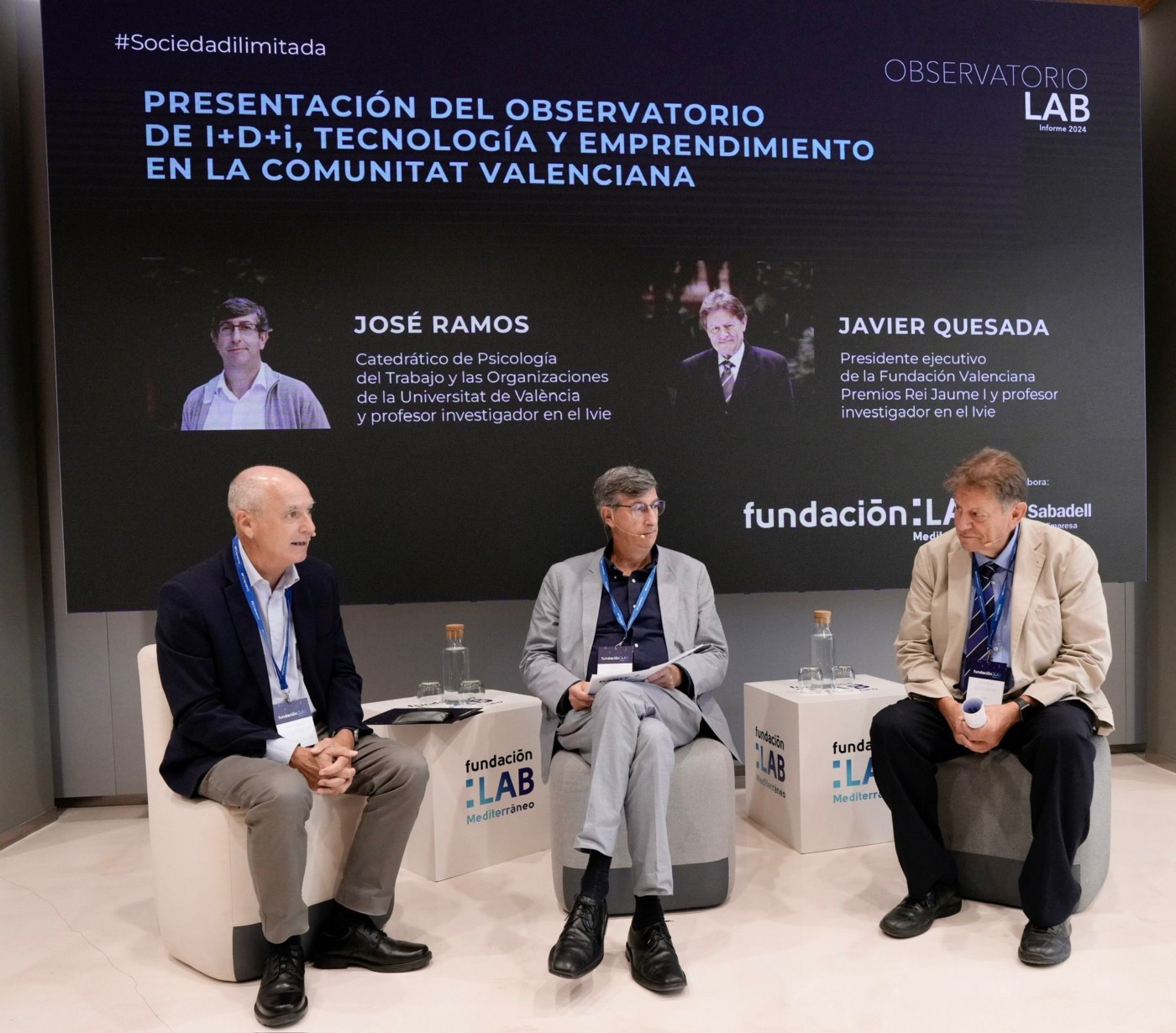Almost 18% of Valencian companies carry out innovative activities, two points above the national average

València, 12 September 2024. Fundación LAB Mediterráneo today presented the Observatory of R&D+i, technology and entrepreneurship. It is a database built in collaboration with Ivie, whose main objective is to monitor the information available in these areas over time in order to compare it with other reference regions and, thus, help in the design of public and private policies aimed at improving results.
The Observatory analyses 50 indicators related to four main pillars: R&D, Intangible assets and business innovation, Technology and digitalization and Entrepreneurship and human capital. The report is also accompanied by a qualitative analysis reflecting Valencian companies’ perception of the technological talent available in the region.

Fundación LAB Mediterráneo’s president, Héctor Dominguis, began the event underlining the fact that “The Observatory is an essential working tool that will help us monitor our evolution over time and our progress compared to other regions of Spain, to know in which areas we are improving, or in which areas we need more effort, and to be able to design concrete and effective actions in line with our mission”.

Next, Javier Quesada and José Ramos, both Ivie teacher researchers, were in charge of presenting the main conclusions of the Observatory.

Among the main conclusions drawn from the document is the dynamism of the Valencian innovation system, with almost 18% of companies carrying out innovative activities, compared to the 15.8% average for all regions. These companies devote 1.9% of their turnover to innovation. The Valencian Community only ranks below the Basque Country, with 25.2% of innovative companies, and Catalonia, with 19.8%.
The document also highlights the entrepreneurial nature of the Valencian population, since 8% of the inhabitants of the region are involved in processes of creation and the development of business projects. A percentage above the national average (6.8%) and the rest of the reference communities: Madrid, Catalonia, Andalusia and the Basque Country.
In view of these positive data, the report stresses the need to increase the intensity of investment in R&D. Although in recent years the Valencian Community has recovered the investment rate of the beginning of the century, it is still below the average. The average expenditure on R&D per employee stands at 66,050 euros, compared to 86,788 which is the Spanish average, and barely covers the cost of salaries.
In addition, the authors of the report pointed out that investment in intangible assets in relation to GDP is also lower than the national average (7% compared to 7.6%).
Human capital in R&D activities is another of the indicators analysed by the Observatory highlighting the exponential growth since 2002, when there were 13,600 people carrying out R&D activities, reaching 23,000 ten years later, in 2022. Although the number of women is increasing, from 5,311 to 9,485, they represent 41% of employment in R&D activity.
As for the qualitative analysis of talent, based on interviews with HR managers in companies, the study shows that Valencian companies admit to finding it difficult to attract more technological profiles, with industrial specialization, but also senior professionals or middle managers. Of the shortcomings identified in candidates are lack of maturity, low tolerance for frustration, the inability to defer rewards, poor business orientation, together with insufficient knowledge of the reality of companies and, finally, a low level of both cognitive (critical reasoning, analytical capacity…) and social skills (communication skills, conflict management…).
Companies find it difficult to attract talented people with a strong long-term commitment. For this reason, the most innovative companies are changing their strategy towards an orientation aimed more at attracting greatly committed talent that provides maximum value in the medium term, instead of prioritising exclusively the more long-lasting commitment.
Recommendations of the Observatory
The report also includes suggestions and recommendations to improve the reality of Valencian companies in the field of innovation:
- Public investment in R&D must be stable and planned for the medium and long term (multi-year budgetary commitments), without ebbs and flows, and seek the de-bureaucratization of management procedures and the evaluation of the results of the actions carried out.
- To promote the development of R&D activities within companies, including small businesses, an R&D+i area should be created, close to general management, to develop an innovation strategy and take advantage of EU Next Generation funds.
- Together with investment in R&D, Valencian companies need to invest in other intangible assets that help improve productivity: incorporating software into their production processes, having specific human capital (technological profiles, data management specialists, artificial intelligence developers, technologists…), generating the company’s brand through product design and advertising, and investment in an organisational structure based on technology and digitalisation. Almost 3,000 Valencian companies already carry out innovation activities in their products or processes, but there are more than 000 that fail to do so.
- The weight of those economic sectors with a higher digital intensity must be increased, but, similarly, digitalization in the rest of the companies must be increased. Barely 2% of employment in Valencian companies corresponds to ICT specialist personnel. The use of this specialized human capital is one of the aspects to be improved by the Valencian business network.
- The high level of entrepreneurial activity in the Valencian Community must be oriented towards companies based on knowledge, technology and the economy. Entrepreneurs must design it as a company that is born digital.
- For their part, Public Administrations must ensure that the regulatory environment does not unjustifiably harm business activity or create unnecessary uncertainty or insecurity.
Fundación LAB Mediterráneo
Fundación LAB Mediterráneo is a project created by AVE with the mission of positioning the Region of Valencia as a national and European benchmark in entrepreneurship, innovation, technology and research.
To achieve this, it has set itself five objectives: to promote the creation and attraction of technology start-ups; to work to attract national and international technology companies to set up in the Region of Valencia and create a ‘tractor effect’; to promote support for companies in non-technological sectors to accelerate their digital transformation; to contribute to increasing private investment in R&D&I; and to help promote research.
The Foundation’s Board of Trustees is made up of the following entities: Aceitunas Cazorla, Aquaservice/Plug and Play, AVE, Baleària, Banco Sabadell, Boluda Corporación Marítima, CaixaBank, Dacsa Group, Deloitte, Ecija Abogados, Embutidos Martínez/KMZERO, Exponentia, GDES, Grupo Bertolín, Grupo Gimeno, Helados Estiu, Importaco, Lanzadera, Logifruit, Nunsys, Royo/ Invext, S2 Grupo, SPB/Cleanity, Verne Technology Group y Zeus/Sesame.






